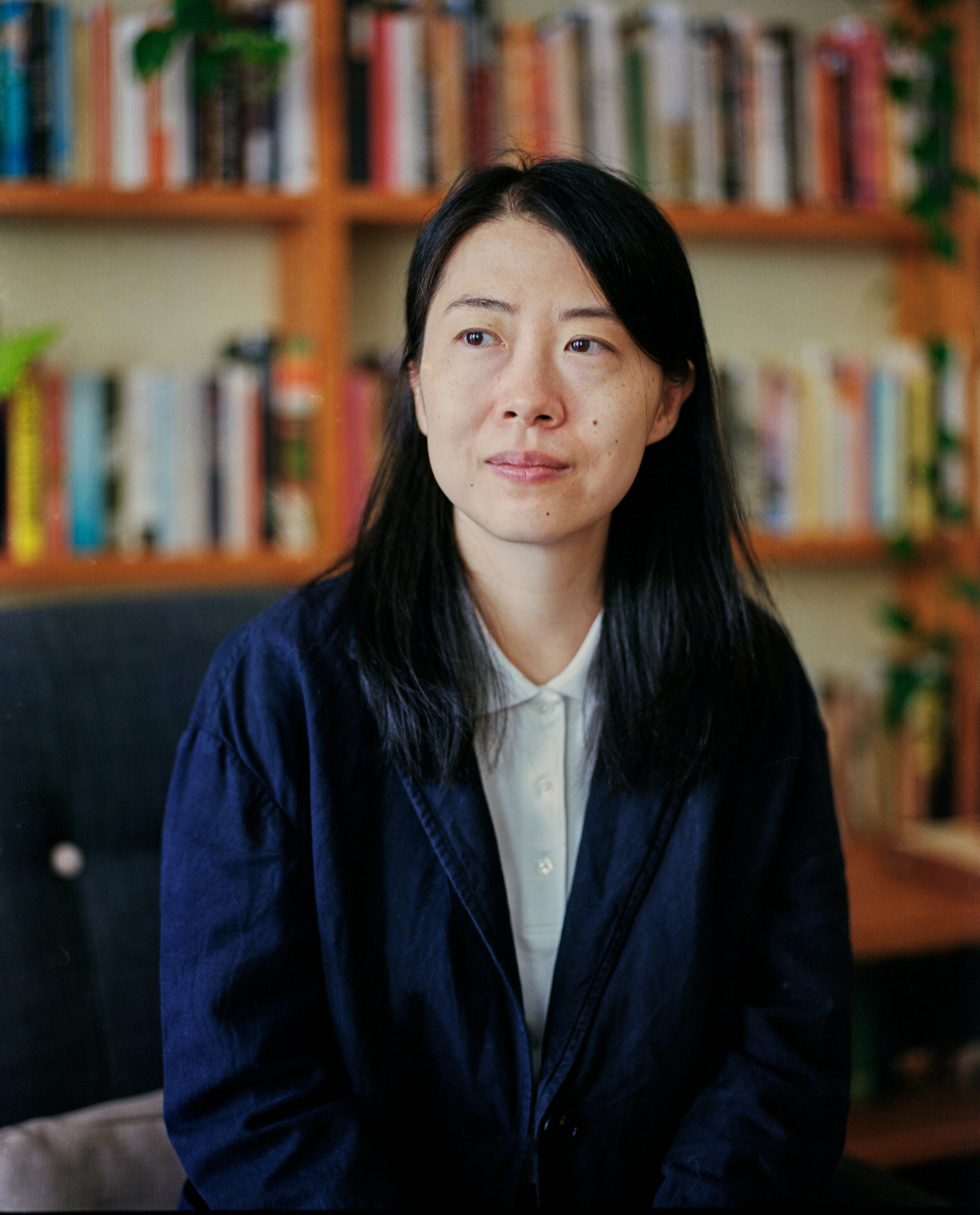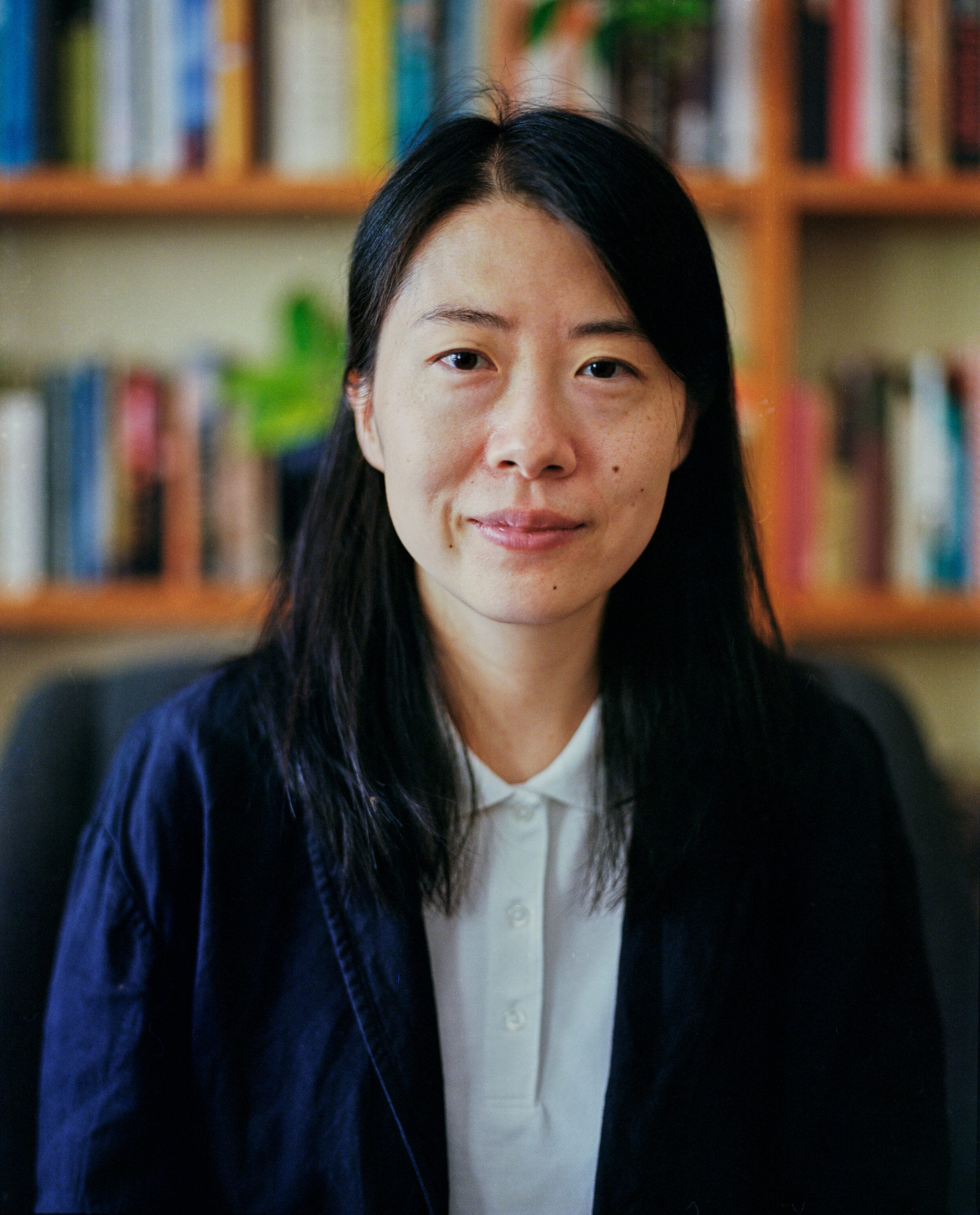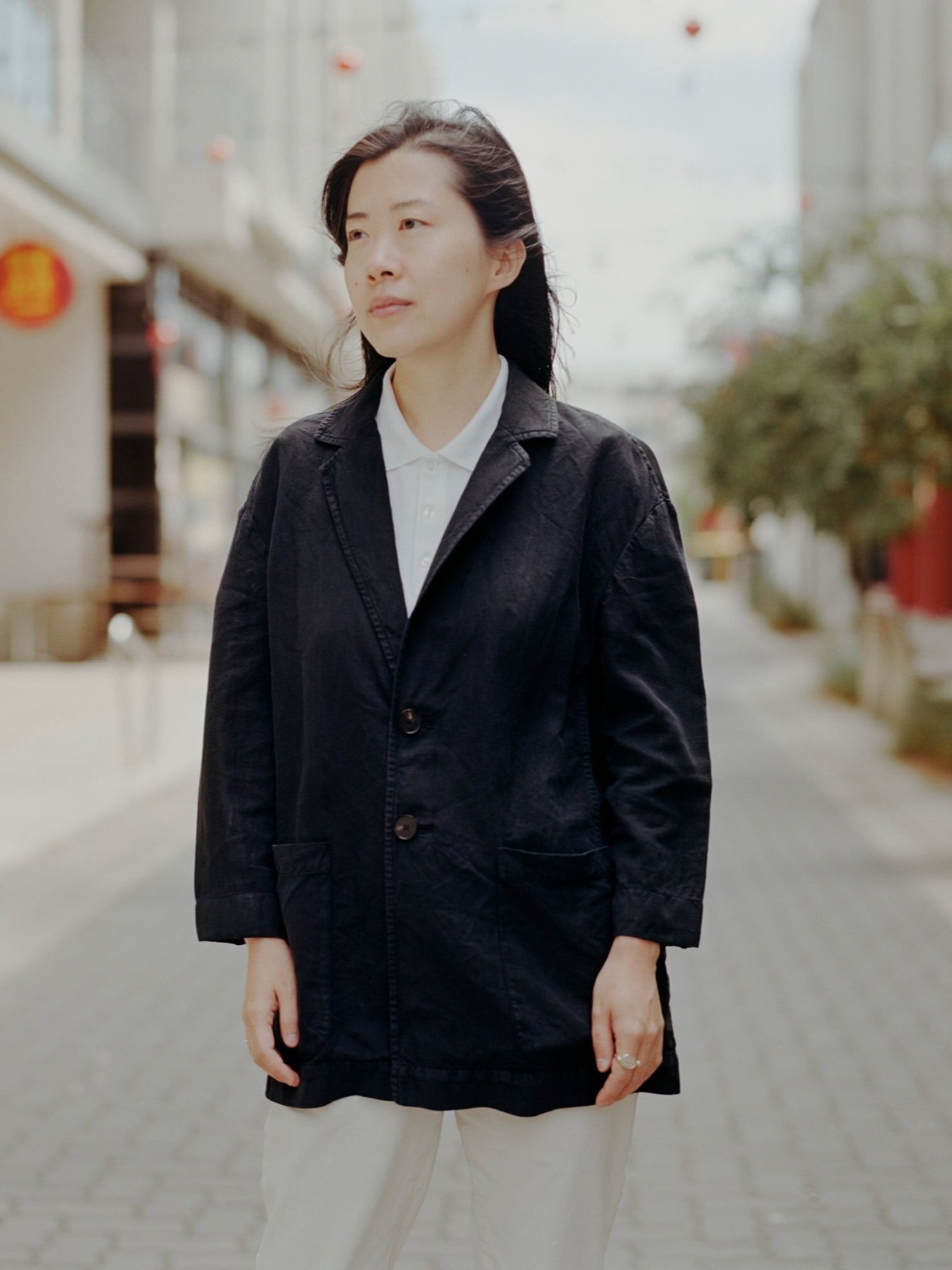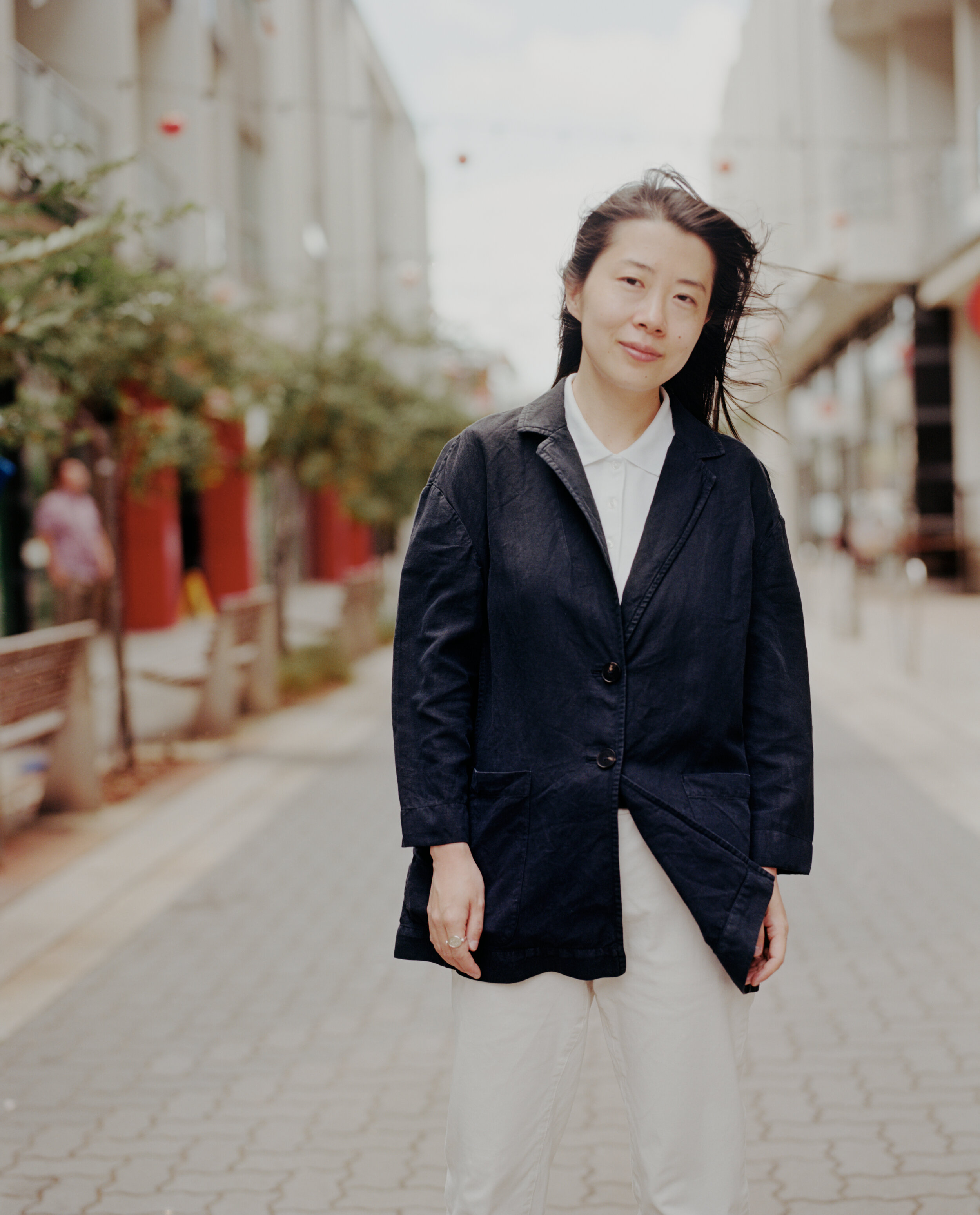Interview #165 — Iris Fan Xing
by Robert Wood
Iris Fan Xing is a poet and translator who is interested in language, place, and home. She recently returned to Perth from New York City and is currently working on translations for Giramondo.
Iris spoke to Robert Wood about return and renewal, balance and purpose, and how poetry matters across borders.
You grew up in China and came to Australia to study. Can you explain your early life there and how you came to be interested in language and literatures?
I grew up as an only child (like many people my age) in Mainland China. My family relocated to Guangzhou when I was in primary school, so I grew up under the huge influence of Cantonese culture (especially the pop culture from Hong Kong in the late 90s and early 2000s). The primary and secondary education I received were mandatory, rigid, and systematic in the political sense. My parents nurtured my interests in language and literature from when I was a child. I still remember having a braised pork bun and a bowl of plain congee and listening to cassettes of a children’s English learning program at home in the morning when I was in primary school. My earliest contact with poetry was through my mum reading classical Chinese poems to me. Although my parents believed in school education, they also gave me the freedom and liberty to find my own path as long as I passed my grades. I always did better in liberal arts than in maths and science at school. Their relaxed attitude encouraged me to enjoy spending more time in those subjects. My parents never said no to buying books for me. The best birthday present I’ve received was a set of The Complete Novels of Louis Cha from my dad when I was in high school.
When you came to Boorloo/Perth, what was your first impression? Both of the city, and, maybe, of the nation?
Boorloo is the name of Perth that I learned after living here. When I first came for a conference in December 2011, I noticed the jacaranda in full blossom at UWA, and the vast and quiet space. I found the city subdued and a bit noir-ish at night, if you see what I mean. The nation had been occupying my mind for a few years before my first visit because of my MA thesis, which was a study of the works of contemporary Indigenous women poets in Australia and China. However, I didn’t have the chance to meet the traditional custodians of the land of Boorloo at that time.
Tell us about your studies here and your research.
I relocated to Perth after I was offered a place in the PhD program at UWA in 2012. The subject of my research was Australian and Chinese women’s poetry after 1949. My method was one that involved theoretical, translational, and poetic writing.
At the moment, you are based in New York City and have just returned to Boorloo/Perth. Can you outline some of the ways, your routes and pathways make sense to you now? Does it feel like being in a metropolitan centre?
In 2018, I moved to New York with my husband when he started his postgraduate studies. It took me quite a while to adjust to the life in this megacity (the biggest I’ve ever lived in so far), to the time difference, and to accept the fact of being so far away from both of our families and friends. But I’m always attracted to the ‘notion’ of New York and what it offers. It means the MET, Village Vanguard, Poetry Project at St. Mark’s, Anthology Film Archives, and the dwellings of many of my arts and culture icons. I’ll always remember the afternoon when we went to see Andrei Rublev at Walter Reade Theatre and saw Patti Smith sitting in a row by herself behind us.
I guess in that way, it is a great city where lots of cultural mixing and cultural production happens as well. Does it retain its charm at this particular historical moment?
It was really when we stopped going out in March 2020 that we started to realise what we were missing. But to answer your question, it surely does. In fact, I feel that the lockdown in New York has intensified and strengthened its charm. There have been lots of debates around whether the city is still great (or even liveable) on the Internet. I personally think that New York will always be New York. Although I did feel grim and anxious when the sirens from ambulances driving past became more and more frequent in April last year, and there were talks about unrest around election time. But I was also cheered up by the sound of pots and pans banging at seven o’clock in the evening and humbled by the BLM marching outside our window on the west 125th street.
Building on from that, you have worked mainly as a translator, working to bring Mandarin texts to an Australian and international audience in English. Do you have a guiding philosophy of translation?
Yes, I will always prioritise women’s writing.
Which translators and books in translation inform your work now?
Luise von Flotow’s Translation and Gender: Translating in the ‘Era of Feminism’ reshaped my thinking on translation and my practice. The poetry and translations of three modern Chinese women—Chen Jingrong (陳敬容), Zhao Luorui (趙蘿蕤), and Zheng Min (鄭敏)—led me to pay attention to the interdisciplinary quality of a writer’s oeuvre. I think I am mostly inspired by writers whose work is a crossover between translation and other genres. For example, Anne Carson, Lydia Davis, and Hsia Yü (夏宇). I’m also inspired by the translators I know: Bao Huiyi (包慧怡), who has translated Paul Auster, Elizabeth Bishop, and Sylvia Plath; Lucas Klein (柯夏智) who has translated Xi Chuan (西川) and Duo Duo (多多); Chris Song Zijiang (宋子江), who has translated H.D., Rita Dove, and Les Murray; and Zhou Zan (周瓚), who has translated Margaret Atwood. They are my teachers and friends.
I don’t think that self-care and social responsibility can be separable in these times.
Could you please discuss a couple of specific translation projects? I am particularly interested in the challenges and successes, but also what you have learnt along the way.
I think I should leave the successes for the reader to judge. At the moment, I’m at the stage of wrapping up two translation projects. They are equally challenging but different in many ways. The first is an anthology of contemporary Australian poetry, which includes poems by more than forty poets. Edited by poets Lucy Dougan and Paul Hetherington, this bilingual anthology will be published by Recent Work Press. The second is two novellas by the Shanghai writer Xiao Bai (小白), which will be brought out by Giramondo. I’m translating from English to Chinese for the first project, and Chinese to English for the second project. With the first one, my challenge is how to preserve and distinguish each of those distinctive poetic voices. With the second one, I’m working in a genre that I have very little experience with. Moreover, the novellas are set in specific historical moments in China, so I need to read up on modern Chinese history. Both have been a learning experience for me. I’m lucky to have Lucy Dougan and Nick Tapper as my editors for each of these two projects, and I’m grateful for their patience, support, and trust.
I have worked on translation projects in the Pilbara and in Kerala, where my mum is from; and these have all been collaborative and consultative. How has your relationship changed to the people and the languages where you have done translation projects?
Translation has brought me closer to people and languages. The last poet whose poetry I have worked on as the sole translator was the Melbourne poet, Susan Fealy. We communicated through email mostly, but we also had the chance to meet up and workshop at my mentor Prof. Kit Kelen’s residence in Markwell, NSW. Kit led me onto the path of poetry and translation twelve years ago in Macao. He founded ASM (a non-profit NGO community publisher) in 2005 and created an active and encouraging environment for aspiring poets and translators like me. I don’t think I’d have been able to build my portfolio without ASM and Kit’s support. Most of my connections with Australia’s contemporary poetry scene were established through his introduction. Translation can be lonely in the sense that one often spends a long period of time concentrating on a particular author’s work. But my experience working with Kit and ASM also taught me that translation is the most straightforward method in making writers from different cultural backgrounds talk with each other. Once you become a translator, you’ll realise every person has something to say about translation. Dialogue is always welcomed.
In terms of language, on the one hand, I feel the growing influence of Australian English (its idioms particularly) on myself since I moved here. On the other hand, outside a Chinese-speaking environment, I find myself paying more attention to the diverse and diasporic quality of the Chinese language. An esteemed Chinese translator of Australian literature once told me over dinner that if one happens upon a racist portrayal of Chinese people, one should censor the specific content as a translator. I disagree with him on that. In ‘Difficulties in the Translation of “Difficult” Poems’, J.H. Prynne wrote at the end that ‘…translate one ambiguity by another! Don’t try to solve the problem: translate it!’. It has been a guiding principle for me on solving the question proposed by language. I hope my translation can be truthful and nuanced.
Finally, how does translation inform your own literary sensibility as a reader and poet?
Reading translations of world literature has greatly informed my literary sensibility. But I tend to write in the opposite direction from what I translate.
Do you have any advice for emerging translators?
I hardly consider myself an established translator. If there’s anything from my experience that I’ve found helpful, it would be showing my translations to other translators for comments. Extending from that—don’t be afraid of mistakes would be another one. There’s always something I want to change whenever I read an old translation of mine. There is always a better word, and, for me, sometimes it takes a few years to find it.
Who are you inspired by?
Philip Winter in Lisbon Story.
What are you listening to?
Julianna Barwick’s Healing is Miracle, Keith Jarrett’s Budapest Concert, and Max Richter’s Voices. I’ve also been rotating the old albums by a few of my favourite artists from Taiwan: Lin Sheng-xiang (林生祥), Panai (巴奈), and Sandee Chan(陳珊妮).
What are you reading?
I’m currently reading the last chapter of City Poet, a biography of Frank O’Hara. I plan to start Interior Chinatown by Charles Yu next.
How do you practice self-care?
The pandemic has added new meanings to ‘self-care’ for me. An act as simple as putting on a mask whenever I go out of our apartment in New York is both self-caring and caring for others. I don’t think that self-care and social responsibility can be separable in these times.
What does being Asian-Australian mean to you?
‘Asian-Australian’ is a word that tricks me into feeling that I’m a minority. When I read or hear someone described as ‘Asian-Australian,’ I wonder where exactly in Asia this person comes from or belongs to. What if this person doesn’t feel Asian or Australian? In this case, it’s kind of a trigger-word for me, which makes me want to know more about a person. If I’m asked to identify myself, I’d say I’m a Chinese who has lived in Australia and America.
Find out more
Interview by Robert Wood
Photographs by Chris Gurney







